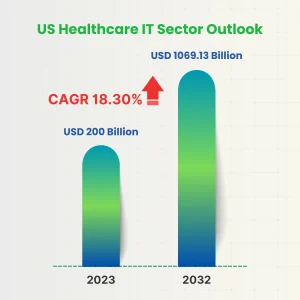Last Updated on September 3, 2025 by Techcanvass Academy
Table of Contents
Overview
A Healthcare Business Analyst works as an intermediary between the client and the technical team to develop a solution for the healthcare Industry.
Broadly speaking, a Business Analyst in healthcare domain understands the business requirements, analyses the requirements, models the processes, designs, and documents the systems requirements.
In this article, we will explain the role, responsibilities, career path, and salary of a healthcare Business Analyst.
What does a Healthcare Business Analyst do?
The job specification for a healthcare business analyst depends upon the organization’s structural level. However, some everyday responsibilities of this Healthcare Business Analyst profile are mentioned below:
- Regularly checking and inspecting the work and instructing the changes if required by the team members.
- Concluding and processing in-depth data analysis using simple but not limited to a spreadsheet, Microsoft tools.
- Assembling, arranging, and assessing pertinent data, including financial statements, vendor contracts, and EHR system specs.
- Conducting interviews as required to understand current procedures and identify potential areas for change. Communicating with internal and external stakeholders.
- To provide suggestions for how to realize savings and enhance business processes, companies analyze their income, profits, and losses and present employee levels.
- Creating alternate strategies and plans for potential adoption, such as selecting a new EHR vendor or recommending technology to aid system interoperability.
Roles & Responsibilities of Healthcare Business Analyst
A business analyst in healthcare industry performs the following tasks:
- Conducts elicitation meetings to understand business requirements for the proposed system.
- Facilitates interviews as required to understand current procedures and identify potential areas for change. Communicating with internal and external stakeholders.
- Evaluate and design healthcare processes for improvement or implementation.
- Documents the detailed requirements specifications for the technical team to develop the application.
- Collaborates with the stakeholders to analyze, evaluate and implement changes in the system for better results
- Conducts solution evaluation to assess the value realization and designs improvements, if value is not realized
- Creates alternate strategies and plans for potential adoption, such as selecting a new EHR vendor or recommending technology to aid system interoperability.
Read More – What are the Roles & Responsibilities of a Business Analyst?
Useful Links: Business Analyst Training with Healthcare Domain | US Healthcare Domain Training
Healthcare Business Analyst Career Path
Business Analysts in healthcare domain enjoy good growth and remuneration. One of the reasons for this is the strong growth in healthcare IT domain.

The industry’s growth is enticing, making healthcare business analysts one of the most sought-after job profiles.
Most of the business analysts begin their journey as a general Business Analyst and then progress into other areas or specializations.
Healthcare Business Analyst, Entry Level: You can start as a healthcare Business Analyst, by training yourself in Healthcare domain. A healthcare professional can also transition to a healthcare BA profile.
Healthcare Business Analyst, mid-Level: You grow into a senior role with 3-5 years of experience executing healthcare projects. At this level, you can choose to be:
- Business Analyst, Healthcare
- Healthcare data analyst
Healthcare Business Analyst, Senior Level: With 5-10 years of experience, you open up several new career options for yourself. These could be:
- Healthcare domain SME
- Business Consultant
- Business Analyst Manager
- Data Analyst Manager
Healthcare Business Analyst, CXO level: A business analyst in any domain can decide to get into senior CXO level positions. Obviously, it depends on your aptitude and interest. Many Business Analysts want less-stressful life, so they pursue the domain expertise further.
If you decide to get into CXO positions, you definitely need to learn the art of networking, managing teams and many other skills.
Learn More – How to become a Business Analyst?
Healthcare Business Analyst Salary & Job Opportunities
As we have already discussed that the Healthcare IT sector is growing at a CAGR of 18.3% and this growth rate is likely to continue. The demand of professionals in this field is also likely to be strong. Business Analys’s demand is going to be no different.
Some of the top companies which hire Healthcare Business Analysts are as follows:
- Philips Healthcare
- GE Healthcare
- eClinicalWorks
- McKesson
- Atos-Syntel
- Accenture
- Tech Mahinda and more..
In the US, a healthcare business analyst gets an average salary of USD 1,00,749. The typical incentive for a healthcare business analyst is $6,000, or 6% of their base pay. This variation demonstrates how healthcare business analyst professions can produce significantly diverse results, highlighting the importance of intelligent career planning for any job seeker’s long-term success.
According to Glassdoor the average yearly pay for a healthcare business analyst in
| Countries | Average Salary | Base Pay Range |
| India | ₹8,21,279 | ₹5Lakhs – ₹11 lakhs/yr |
| United States | $1,00,749 | $69T – $1L/yr |
| United Kingdom | £36,331 | £25T – £39T/yr |
| Canada | $57,139 | CA$47T – CA$70T/yr |
| Australia | $1,13,729 | A$1L – A$1L/yr |
How do you become a Healthcare Business Analyst?
Thriving in Healthcare Business Analyst roles demands strategic planning and commitment to continuous learning. Follow these six crucial steps to build a robust foundation, acquire relevant skills, and navigate healthcare analytics’ dynamic landscape:
Step 1: Build a robust educational base. Pursue a bachelor’s degree in relevant areas like health information management, healthcare administration, business analytics, or related fields. These programs offer crucial knowledge in healthcare management, data analysis, and business principles.
Step 2: Consider specialized training in healthcare analytics and business analysis. Options include online courses, certifications, or graduate programs focused specifically on these areas. Such training provides deep insights and practical skills essential for success in this role.
Step 3: Develop a familiarity with the healthcare industry landscape. Stay informed about current trends, regulations, and technologies like electronic health records (EHRs) and healthcare data analytics platforms. Keeping up with developments in healthcare policy, reimbursement models, and emerging technologies is vital
Step 4: Analytical and problem-solving talents are key for healthcare data analysis, so keep practising. Learn data tools and stats, and clearly show data visually.
Step 5: Look for chances to get real hands-on work like internships, volunteering at healthcare, places, or consulting businesses. Doing the actual job lets you use your skills, see how the healthcare business works, and build success.
Step 6: Going to events and joining groups for healthcare and analysis pros is smart. Learn by talking with experienced people. Having a mentor can help you grow.
Health Care Business Analysts Courses
To kickstart your career in healthcare business analysis, you can choose a course which imparts both the Business Analysis and healthcare domain knowledge. Our Business Analyst Course with Healthcare Domain is one of the best courses that gives multiple options to accelerate the career.
If you are already working as a Business Analyst and would like to get started in Healthcare, then you can opt for only Healthcare domain training. This course is offered as self-paced as well as live online training.
This course is specially designed to provide comprehensive knowledge to the candidates who want to learn the different functions of the US healthcare market. One of the main employers in the IT sector in the United States of America (USA) is the healthcare sector. High-quality requirements and patient record privacy need ever-evolving technological solutions.
Your route to developing domain expertise is laid out by our US Healthcare Domain training course. In order to give you a thorough grasp of the US healthcare industry, this course goes over its segments, functions, and operations. To help you put your knowledge into practice, this course will also include a project on the US healthcare industry.
The features of this course are listed below-
- 1-year course access (extendable)
- Key terms Flashcards
- 2 Course Projects
- Includes trainer presentation
- Properly explained video lectures
- Pre-recorded sessions
- Chapter-wise quiz for better comprehension of the topic
- Interview questions and answers to boost the confidence
- Daily progress report to measure the progress
- Audiobook
Conclusion
Healthcare Business Analyst is a promising field. It offers excellent career possibilities due to the growing Healthcare IT sector. You can get started in this profile by learning the fundamentals of this domain. Working on Healthcare IT projects provides you the expertise and knowledge to explore many new opportunities later.

FAQs on Healthcare Business Analyst
Q1. What does a healthcare business analyst do?
A healthcare business analyst acts as a liaison between business and technical teams. They analyze and document system requirements to improve healthcare processes and systems.
Q2. What kind of education do you need?
A bachelor’s degree in a relevant field such as business administration or health information management is generally required. A master’s degree can also be beneficial for career advancement.
Q3. What are the key skills required?
You need a mix of technical and soft skills, including an understanding of healthcare regulations, data analysis, and problem-solving. Strong communication skills are also crucial for this role.
Q4. Do I need to be certified?
Certifications like IIBA ECBA are not always required but can significantly enhance your career prospects. These certifications show employers that you have a solid foundation in business analysis principles.
Q5. Is experience in the healthcare industry necessary?
Prior experience in the healthcare sector is a significant advantage. Domain knowledge is key to understanding the specific challenges and requirements of the industry.
Q6. What’s the career path for a healthcare business analyst?
You can start as a junior analyst and grow into a senior role or a subject matter expert. Career advancement can also lead to a position as a business consultant or manager.
Q7. Where can a healthcare business analyst find a job?
They can find jobs in various organizations like hospitals, insurance companies, and pharmaceutical firms. Techcanvass is providing a healthcare business analyst domain course to help you gain the necessary skills.



